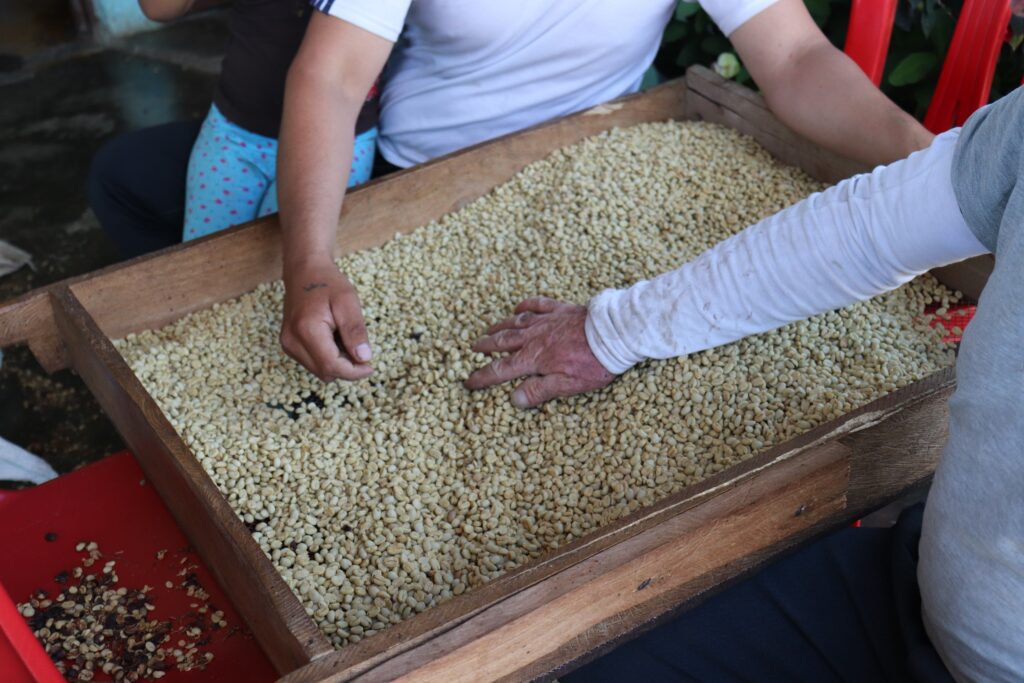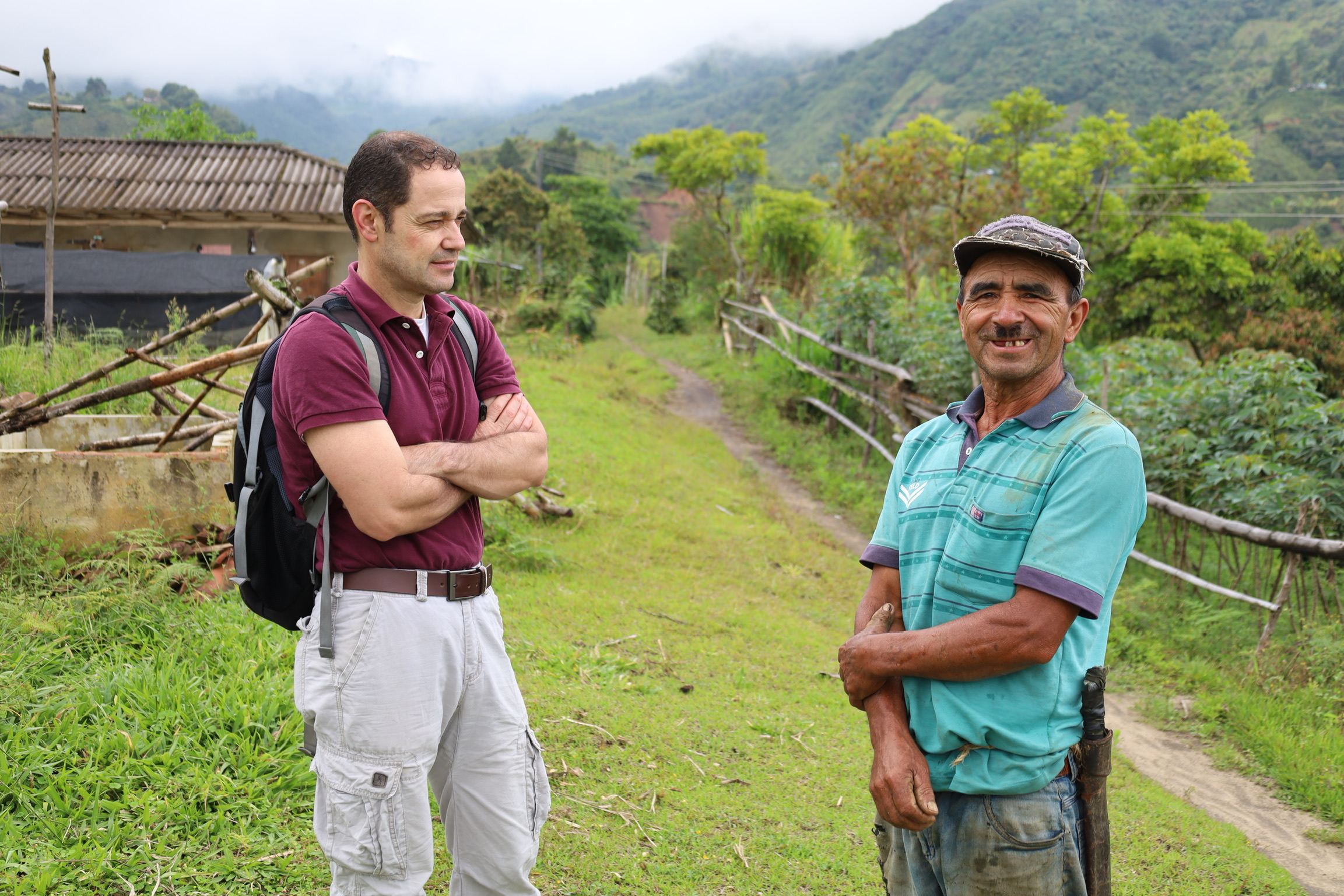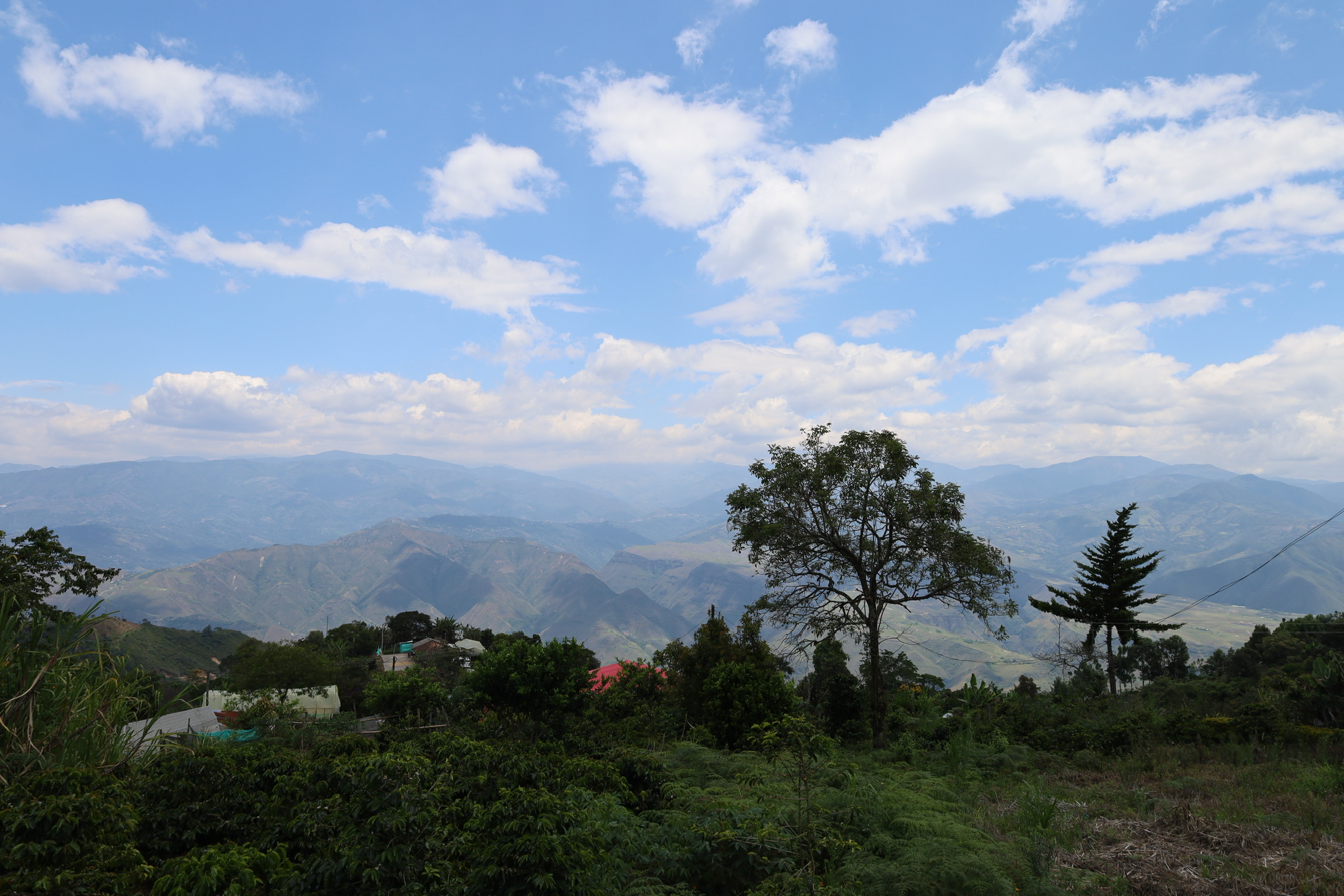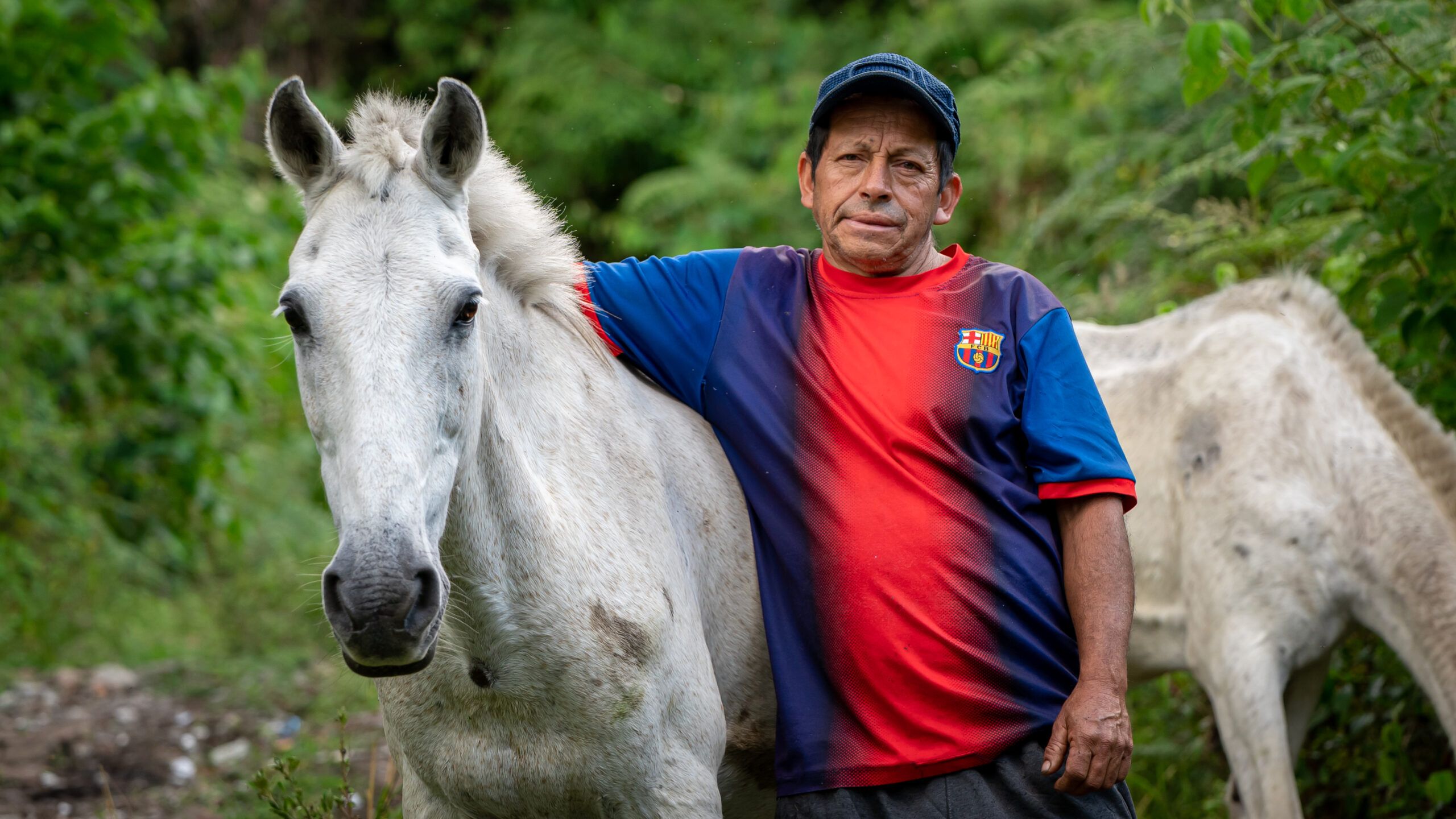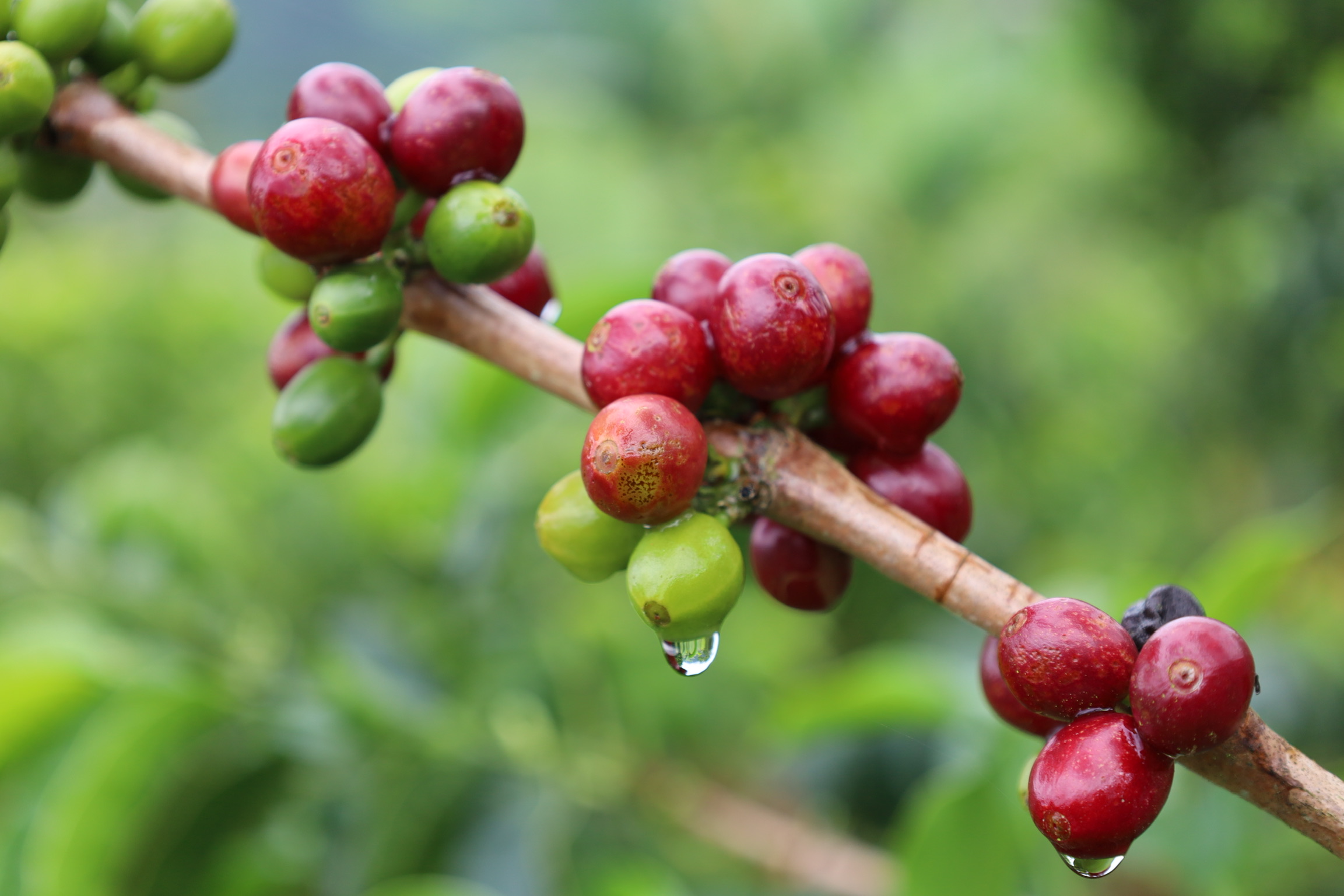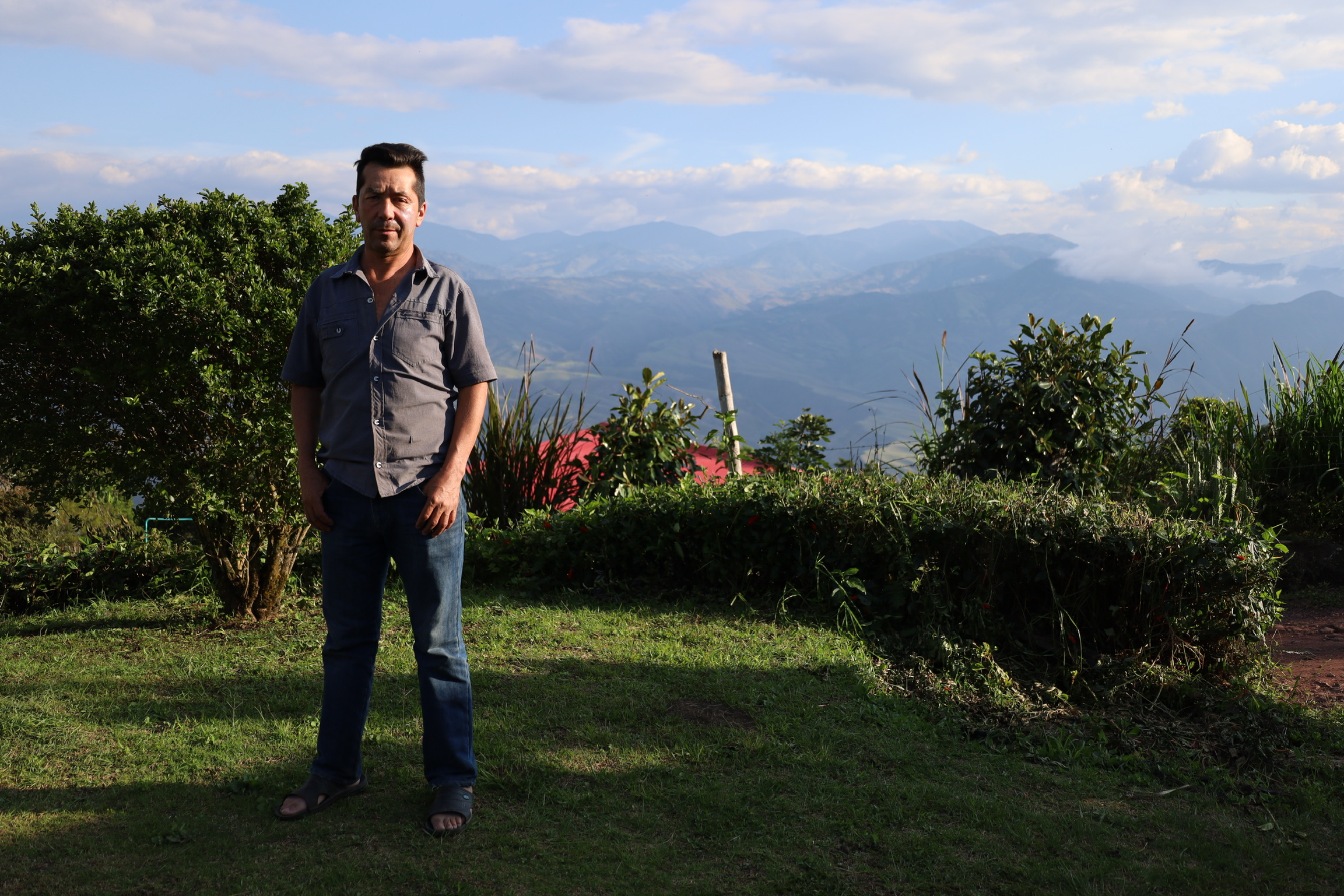231 | Renacer – Pink Bourbon
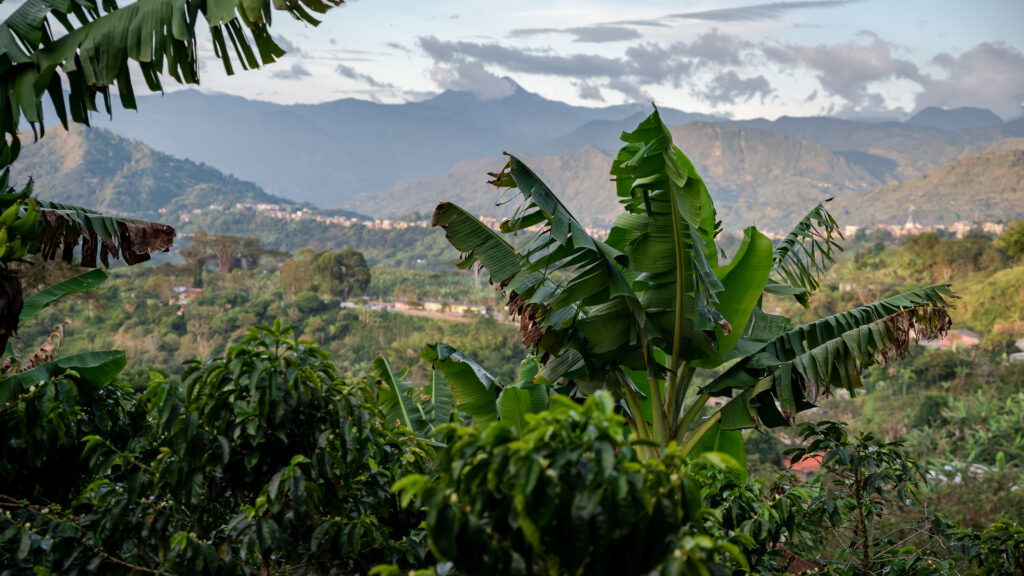
| Producer Rubio Martinez | Description Sweet, molasses, grape, floral |
| Process Washed, sun-dried | Varietals Pink Bourbon |
| Region Nariño | Elevation 1,800 meters |
| Position Spot | Warehouse Continental, New Jersey |
At Renacer, Rubio cultivates 1,200 Pink Bourbon trees. Because his farm is small, he chooses to focus on producing high-end, high-quality coffees. To achieve this, Rubio and his wife, Maria Fany, handle all of the picking and processing themselves, allowing them to maintain careful attention to detail at every step. They harvest only ripe cherries, let them rest overnight, depulp them the next morning, and ferment the coffee for 32 hours. After a light wash to remove floaters, the coffee is dried slowly on raised beds.

